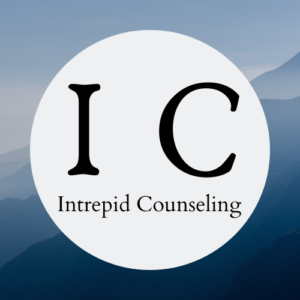Stories > Mental Health Self-Care: Find a Doctor
Photo credit: Photo by Adam Littman Davis on Unsplash
Mental Health Self-Care: Non Mental Health Care Options
.mmu
By Brianna White, Intrepid Counseling
.
Lets begin with an oversimplification – therapists and clinical counselors, psychologists and clinical social workers who provide “clinical” mental health care are kind of like physical therapists, we help people get back able to go about their day without too much pain or “limping” in this illustration. There are lots of other personal growth and development helpers that for the most part take for the starting place of their work that you’re more or less functioning ok, but need help in a certain area or really want to go deep on something. They’re like dance instructors, or sports coaches. They’re not health care, but they sure can promote health.
In my last couple of blogs I’ve talked about the therapist folks and now it’s time for the other category. In my (biased) idea of things, these following healers and growth guides fall into the later category. I’ve also undoubtedly missed some types of helpers, without malice or intent.
Biblical Counseling and Pastoral Counseling
If you’re coming out of the missionary world, or have close connections with a church or churches, you might be offered “pastoral counseling” or “Biblical counseling.” These are often (but not always) provided by people without clinical mental health care licenses and their type and level of training varies extremely widely. The focus is generally what the Bible has to say about what you’re experiencing, in the opinion of the person you talk to and according to the particular faith tradition niche they are coming from. This is not mental health care, but for certain people, this lens is important, and many people have had powerful supportive experiences with these kind of caring conversations. Yet, Biblical counseling and pastoral counseling can be harmful if those providing it are not aware of where their scope of expertise ends. It can also be harmful if their Bible interpretation is shaming, blaming or insensitive or encourages a person who needs mental health care to stay away from that help. For missionary kids there are many quality and sometimes even free options available. Again, however, think of these as caring conversations and not mental health care. Here is an example of an organization that trains and certifies Biblical counselors.
Christian Counseling
“Christian counselor” is unfortunately a vague / multipurpose term, which could mean that the licensed counselor or marriage and family therapist or psychologist is a Christian and that informs how they do mental health-care therapy, or it could mean that they are an unlicensed person who is a Christian and “counsels” in the caring-conversation way we discussed above. Here is an example of an organization that certifies Christian Counselors.
Coaches
Coaches are people with expertise in a given area of life, and a deep desire to share that knowledge to help others. For example a TCK or Expat family coach can support a TCK and their family through a major country transition. By law, in the U.S., at least, coaches don’t need to be licensed or certified, but many do get training and certification to show their commitment to quality care. Just like a good pastoral counselor, good coaches will know when and how to refer you to someone else for mental health care if needed. Here’s an example of an organization that certifies coaches.
Spiritual Directors
For those who want to deeply explore and grow in their faith, a spiritual director might be a good fit. Here’s how one group of spiritual directors describes their role: “The joy and purpose of a spiritual director is to enable another person to discern God at work in their lives, and to hear His call and direction. The spiritual director does not lead or decide for another, but accompanies that person prayerfully” (Diocese of St. Albans). Here is an example of a spiritual direction certification program.
If you have any of these above players on your care team, and also need mental health care, I recommend that you ask these team members to be in communication with your therapist* so that you’re not pulled in different directions, but instead can benefit from everyone’s complementary expertise. *You’ll need to sign some paperwork to give a mental health care person permission to communicate with other people about you.
One of the most important things you can do to figure out if a certain person is right for you at this stage of your journey is find out what kind of training they had to learn how to do what they do. Check out the online description of the program they did. Does it sound like it sets them up to help you with your needs? Take all the time you need to research that and ask them questions about it. You can also ask them if what you have going on is the kind of change they support or if they’d recommend someone else for that. Research and maybe interview more than one person to see if they’re a good fit. Also make sure to ask them about their experience with TCKs.
_____________________________________________________________________


Brianna White

